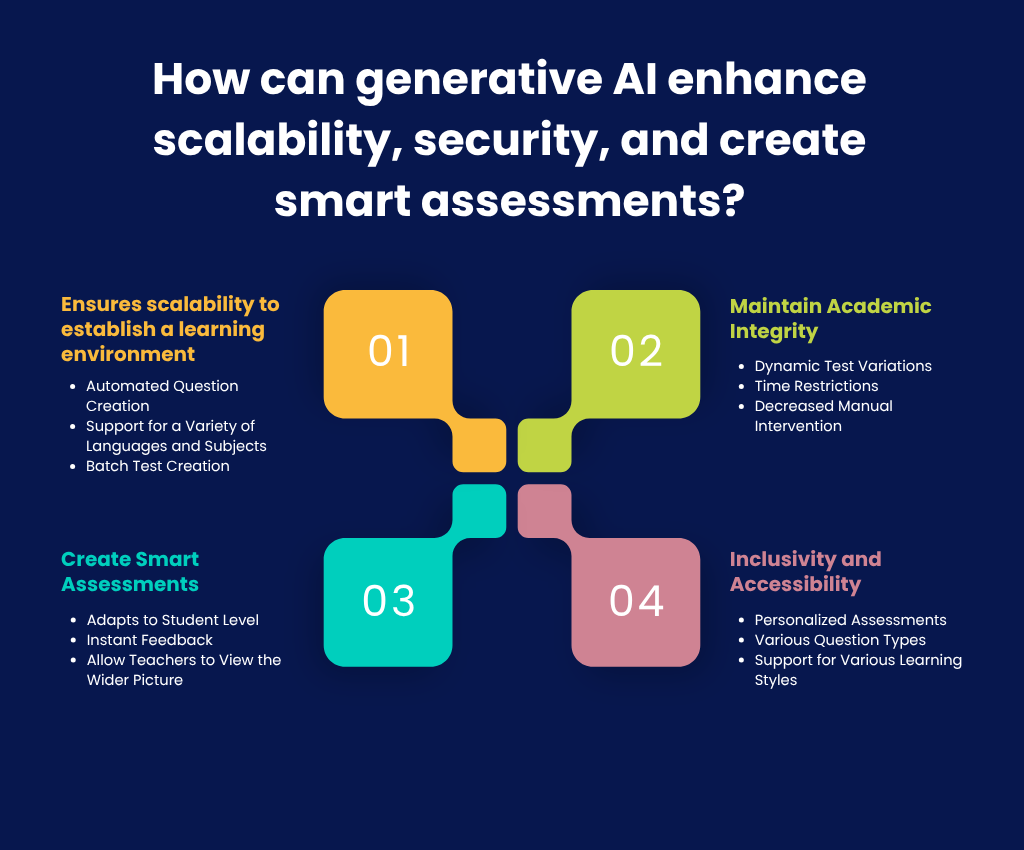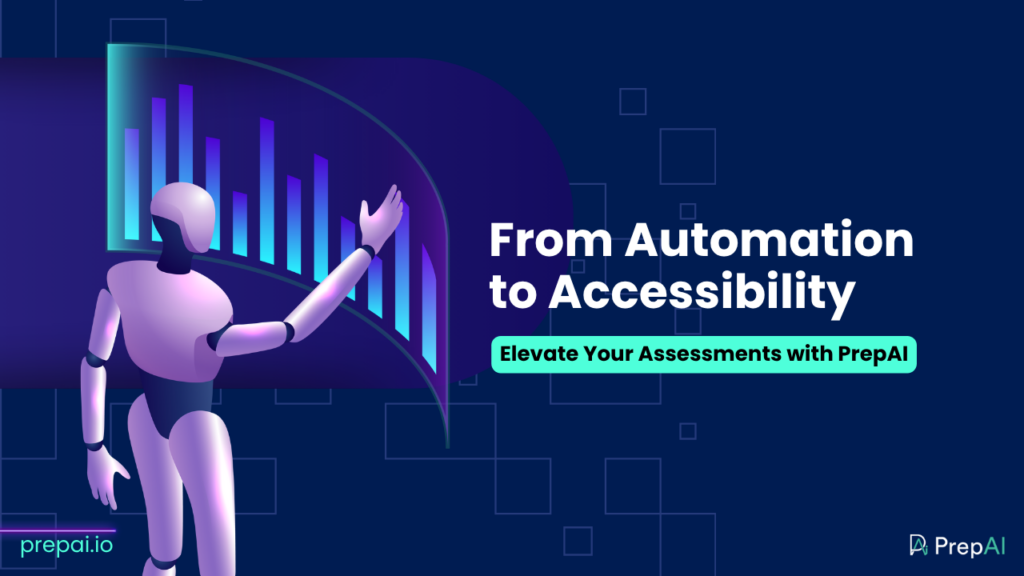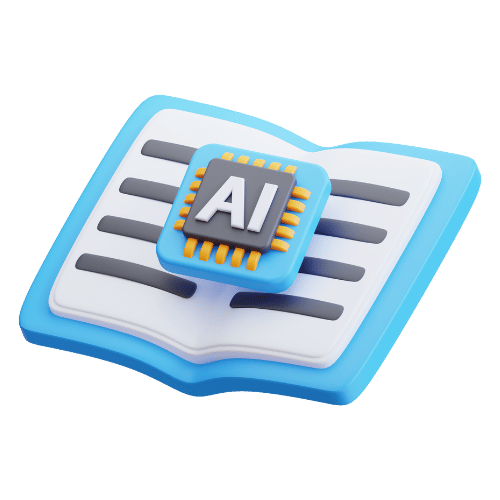AI-powered smart assessments are generated using Artificial Intelligence. These can be automated, modified, and customized assessments used to evaluate the performance of the students. Let's understand how a generative AI can be widely used to create smart assessments and enhance learning outcomes.
With the introduction of generative AI, knowledge sharing and its absorption are changing in the world of the education system. The core of this change is not the technology itself, but its capacity to democratize and customize education, making learning experiences more responsive to the needs and preferences of students. Using AI tools can lead to smart content creation and allow teachers to teach students through presentations, digital lessons, assessments, and infographics.
In recent years, there has been a notable increase in the need for assessments in education that are accurate, scalable, and customized. Generative AI is emerging as a game-changing answer as educational institutions face increasing pressure to fulfill the different requirements of students while upholding academic integrity. By integrating AI-powered tools like PrepAI, educators can transform traditional assessment methods into intelligent, automated, and secure systems that improve both teaching and learning results.As of 2025, it is estimated that around 55% of the learning management systems will be integrating AI for educators, trainers, and students. This integration will allow educators to deliver personalized education to the students, whereas students can adapt to individual learning and improve their outcomes. Moreover, the objective of AI is to guarantee that teachers possess the digital know-how and have AI literacy that directs students to ethically and responsibly use generative AI technologies.
How can generative AI enhance scalability, security, and create smart assessments?
AI has been demonstrated to be one of the most useful technologies, bringing value to a variety of industries. Generative AI may increase educational accessibility and inclusivity for students with a variety of demands. These Gen-AI tools can be customized to provide students with their special needs. Thus, offering them personalized learning through AI-powered assessments. Generative AI’s introduction into education is more than simply a trend. It’s a strategic move to address some of the most enduring problems in contemporary classrooms and education. Scalability, security, and intelligence are the three main advantages that generative AI offers in terms of assessments. Let’s understand how generative AI can transform and enhance education:

Ensures scalability to establish a learning environment
The significant challenge with education is the ability to scale assessments for diverse learner groups across various disciplines, formats, and locations. This demand is simply too expanded for traditional assessment creation. Generative AI has given birth to tools like PrepAI that are AI question-answer generators, and with these tools, educators can do the following:
Automated Question Creation
These AI-backed tools can automatically generate question papers from text, PDFs, videos, and other learning resources in large quantities. These AI generated questions and answers help students gain insights on topics in a detailed manner.
Support for a Variety of Languages and Subjects
Generative AI can comprehend and produce relevant questions in a variety of fields, including Science, Arithmetic, History, and Soft Skills, as well as in regional languages.
Batch Test Creation
Teachers can generate hundreds or even thousands of distinct tests that are tailored to particular classes or learner groups with a few clicks. These tools create new questions for the students assessments, allowing teachers not to worry about cheating everytime.
Maintain Academic Integrity
With the shift of educational institutions towards digital assessments, safeguarding exam integrity becomes critical. In the era of conducting online exams, securing testing environments is necessary, and with the use of generative AI, it becomes easy because it can embed flexibility, predictability, and control every step of the assessment process. The generative AI will enhance security in the following ways:
Dynamic Test Variations
By quickly creating several versions of the same test with rearranged questions and answer choices, AI systems such as PrepAI can greatly lower the likelihood of cheating and content breaches.
Time Restrictions
These tools enable educators to set strict time windows and controlled access to the tests. It helps them to ensure that only authorized participants can take the test within the selected time frame.
Decreased Manual Intervention
Generative AI solutions improve exam security by reducing human interference and content exposure through the automation of test creation. Thus, it enhances overall exam security.
Create Smart Assessments
Assessments in the modern era should promote learning rather than focusing on testing memory. Generative AI enables this by transforming standard assessments into intelligent and flexible tools that guide both educators and learners. By generating question answer or other assessments with AI tools, educators can improve learning in the following manner:
Adapts to Student Level
AI is able to modify the level of questions according to a student’s response, providing a more individualized and equitable assessment experience. Assessments become more inclusive when they are personalized in this way, enabling all students to show their full potential.
Instant Feedback
Students don’t have to wait for results when they use AI tools like PrepAI because these tools share immediate scores and advice on how to perform better and score good marks. Thus, in the long term it increases the reinforcement power of the students.
Allow Teachers to View the Wider Picture
These GenAI tools allow teachers to access more information than just focusing on the test results. With these tools they can analyze patterns, understand where students are lacking, focus on typical errors and identify areas where students might need more support.
Inclusivity and Accessibility
Generative AI is transforming education by ensuring that assessments are not only intelligent but also inclusive. At one end, it helps in maintaining academic integrity, and on the other, it supports diverse learning needs of the students. These generative AI solutions help educators create tests that are fair, flexible, and accessible to all. It promotes inclusivity in the following ways:
Personalized Assessments
AI tools enable teachers to provide more individualized and helpful learning experiences by customizing assessments according to students’ skill levels, learning styles, and past performance.
Various Question Types
With these tools, educators do not have to waste time framing different types of questions on their own. These tools offer a variety of question types to accommodate various subjects and cognitive styles, including multiple-choice, descriptive, true/false, and image-based questions.
Support for Various Learning Styles
The tools like PrepAI can accommodate and generate scenario-based, visual, and analytical questions to cater to visual, auditory, and kinesthetic learners. Thus, it can fulfill the needs of different types of learners in one go.
Conclusion
Students can improve their critical thinking abilities and gain a deeper understanding of the subject matter by critically analyzing AI-generated information through generative AI. Furthermore, generative AI tools aid in the development of interactive situations for personalized education, such as role-playing exercises. These simulations give students the opportunity to converse or argue with AI, offering an individualized and secure setting for honing skills while showcasing a variety of conversational situations.Additionally, AI-generated assessments can foster an environment of continuous improvement, personalized learning, and equal opportunities, ensuring that every student, regardless of their background or learning style, can thrive academically.




